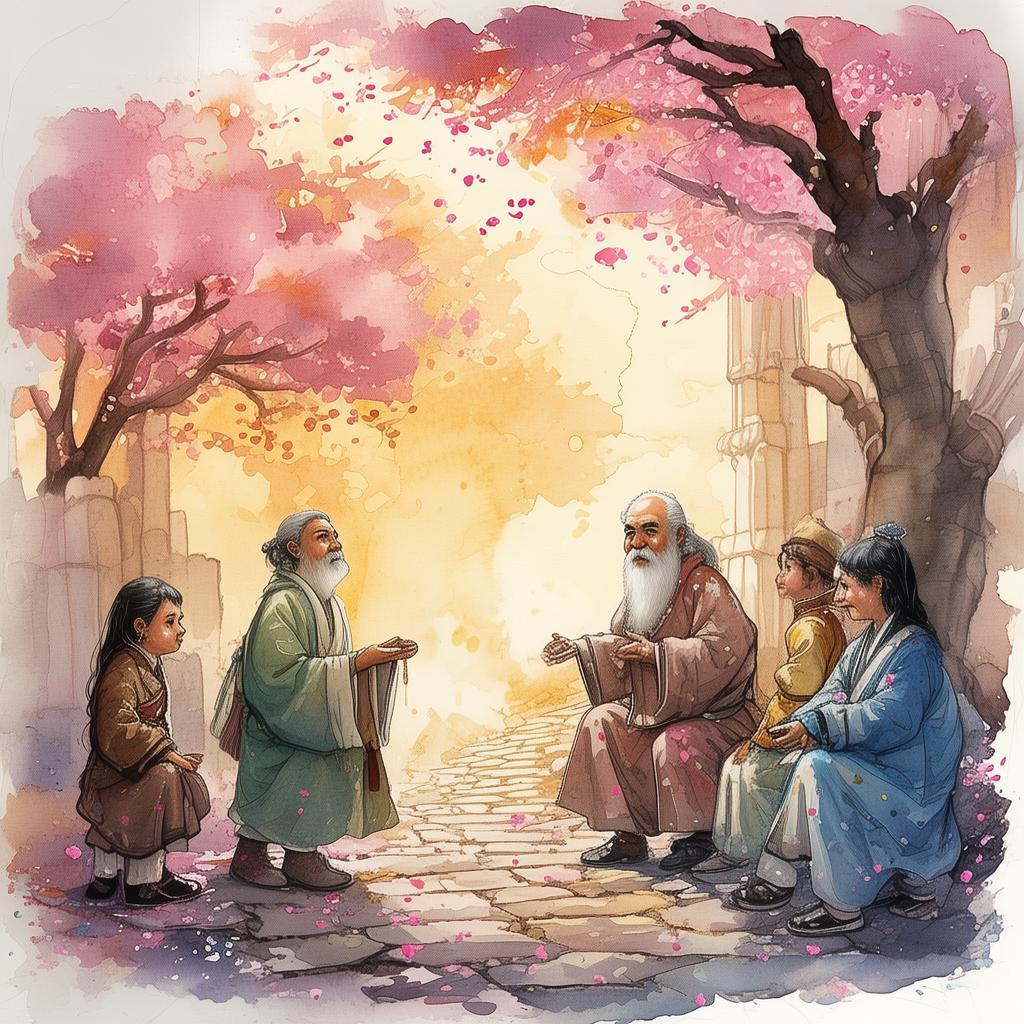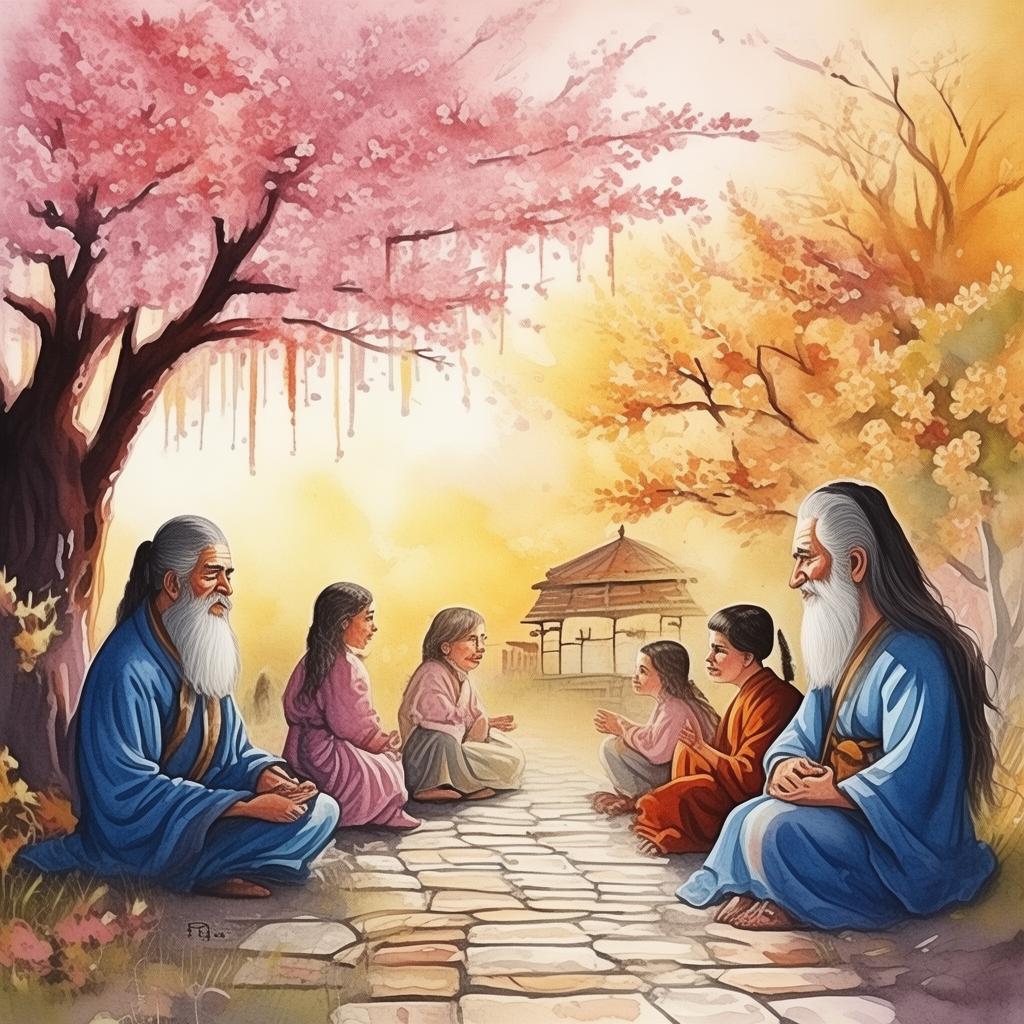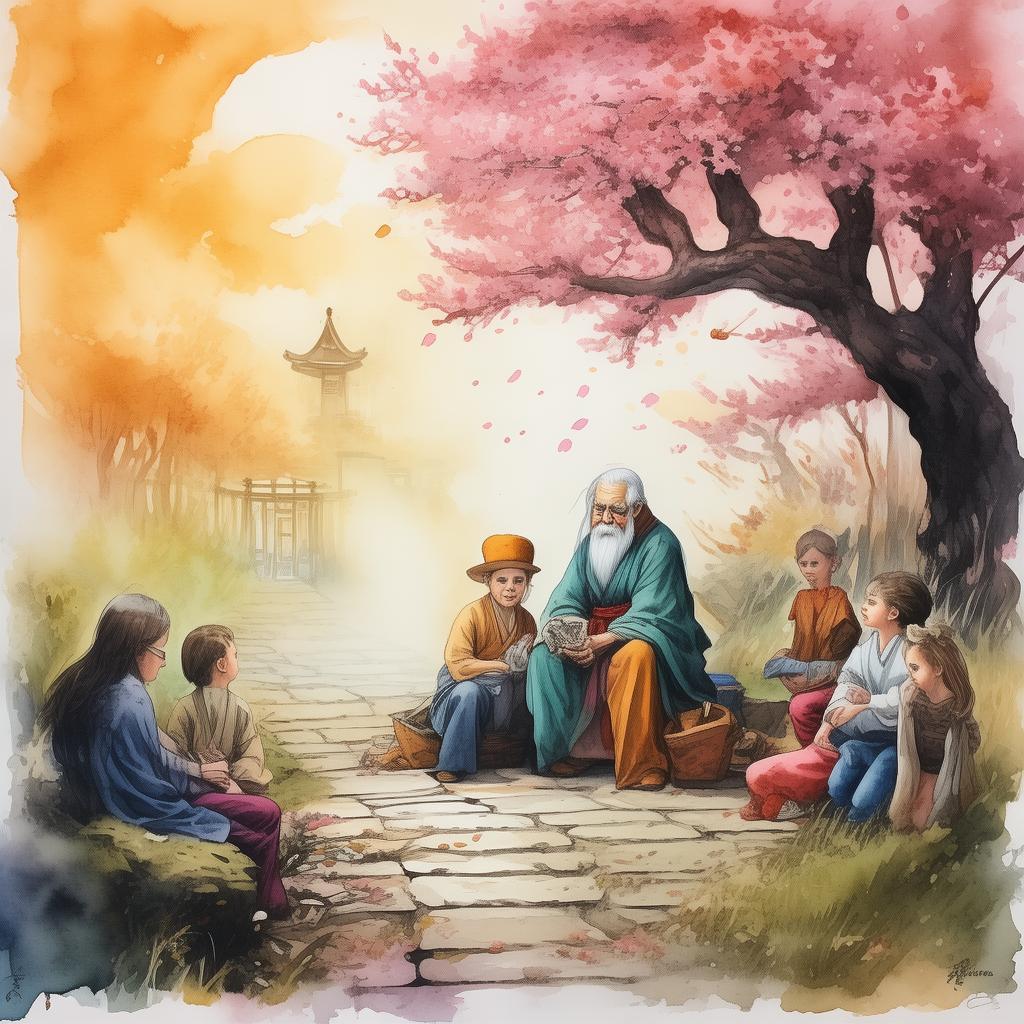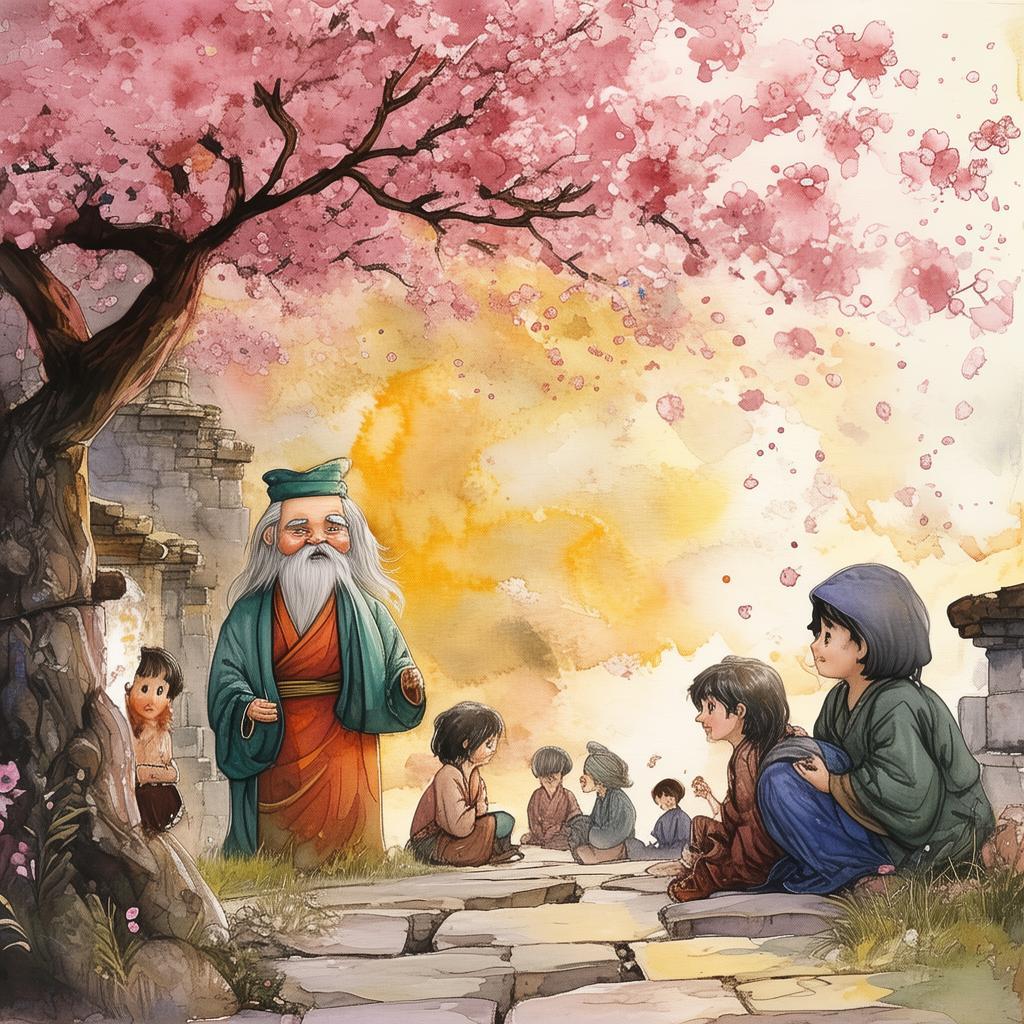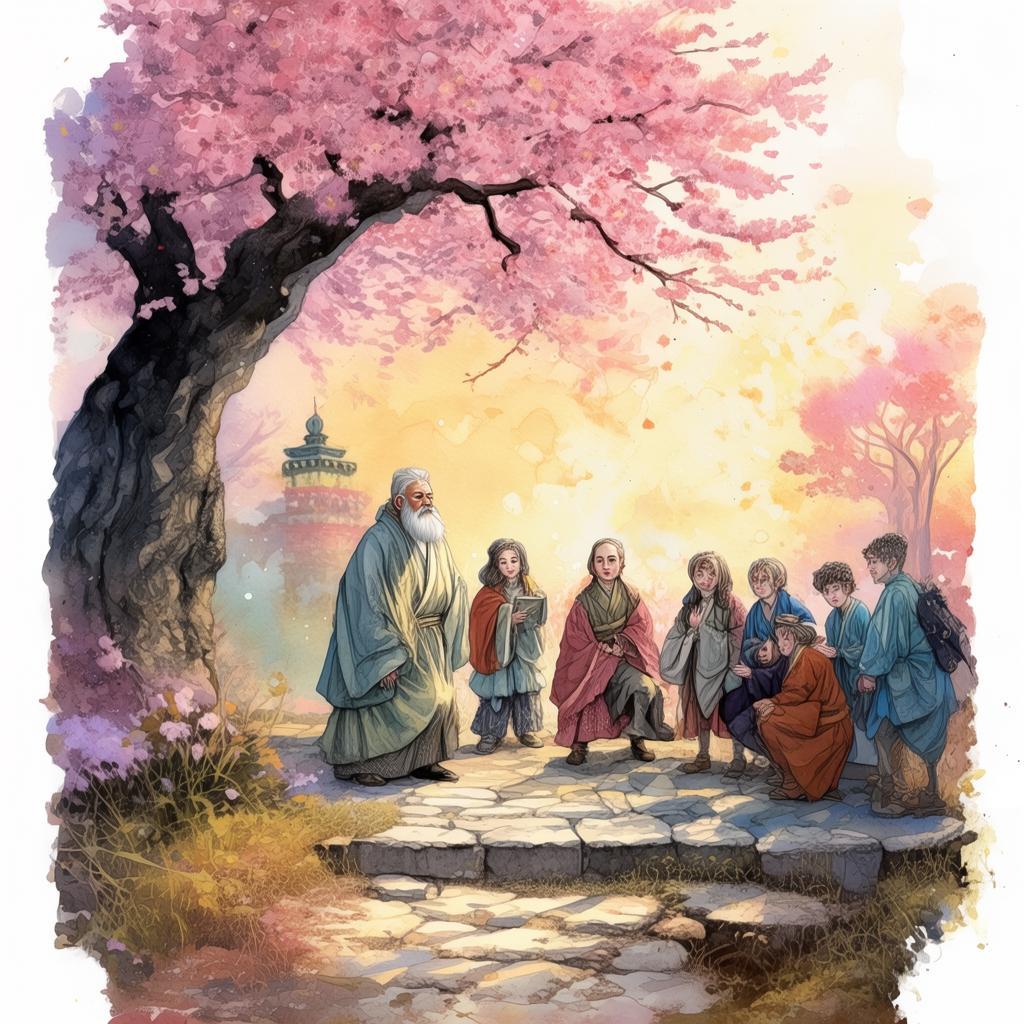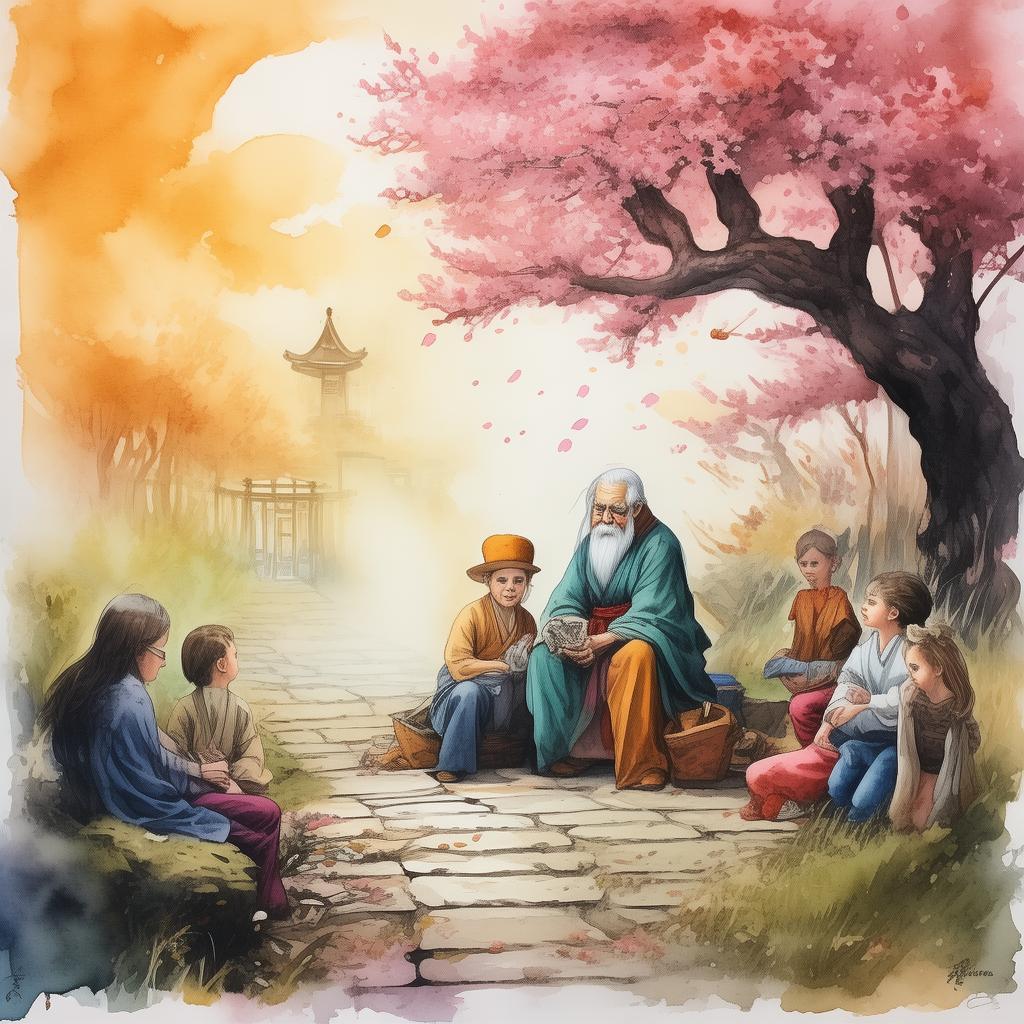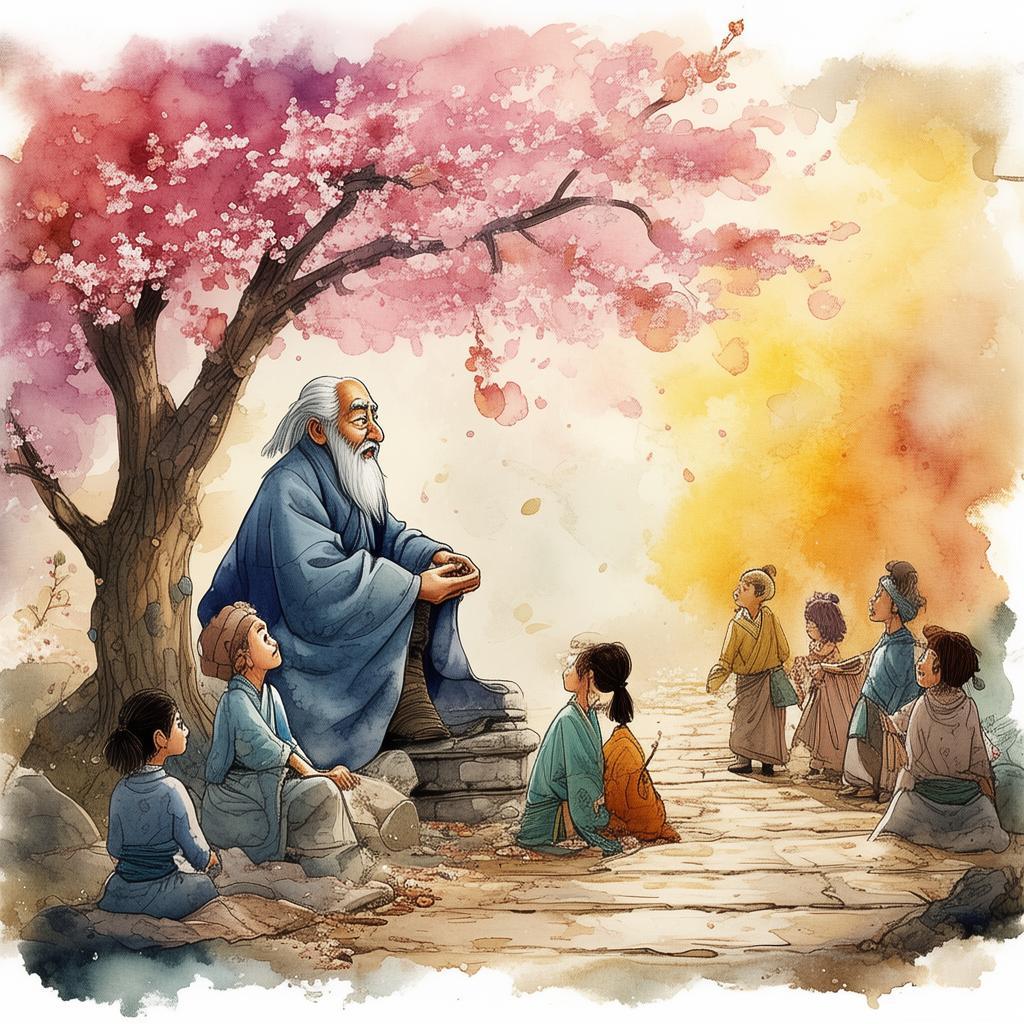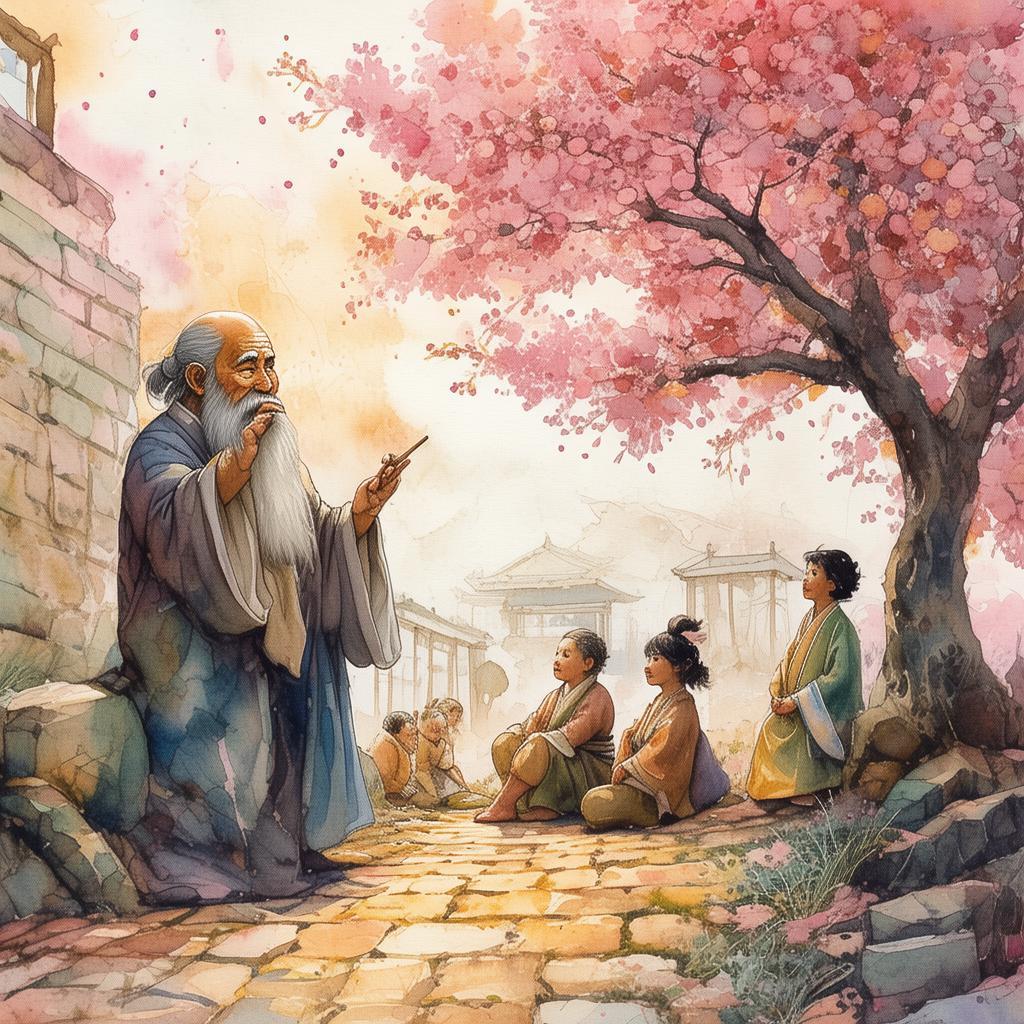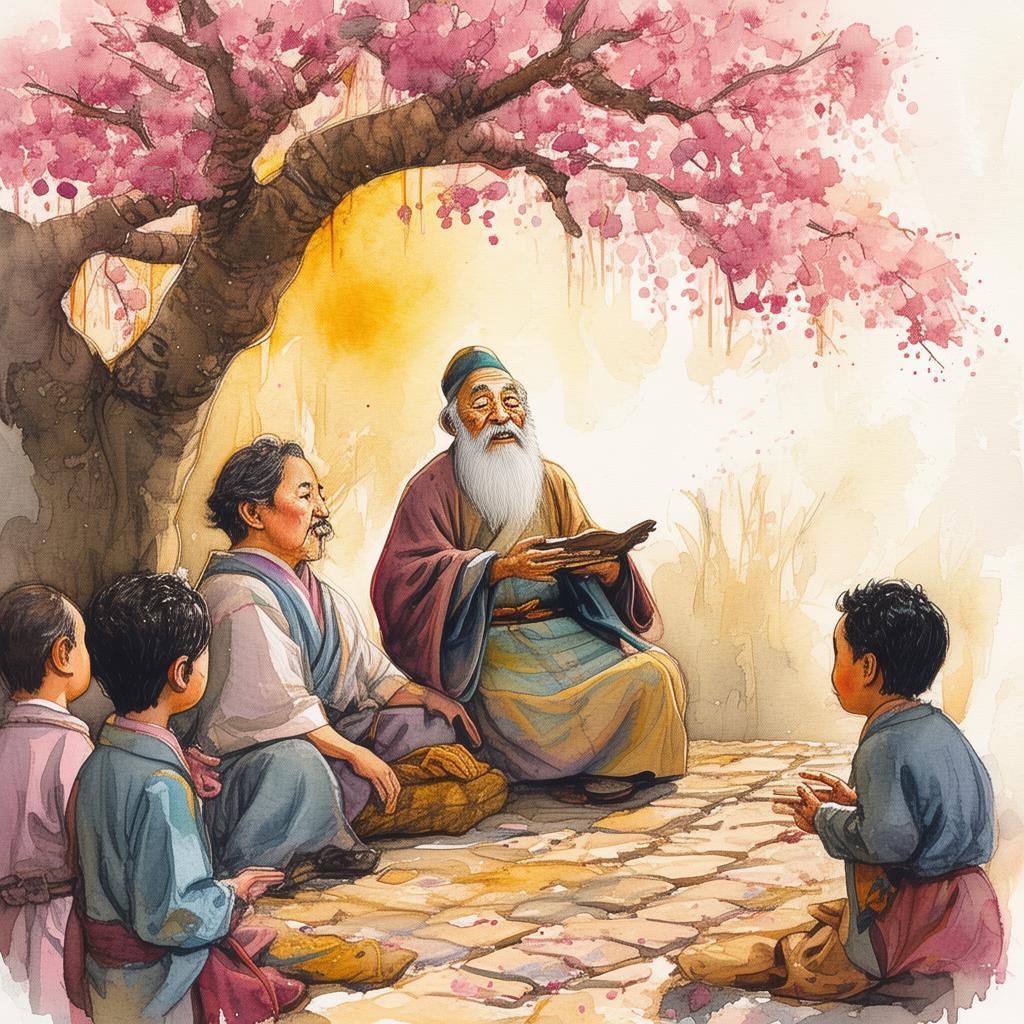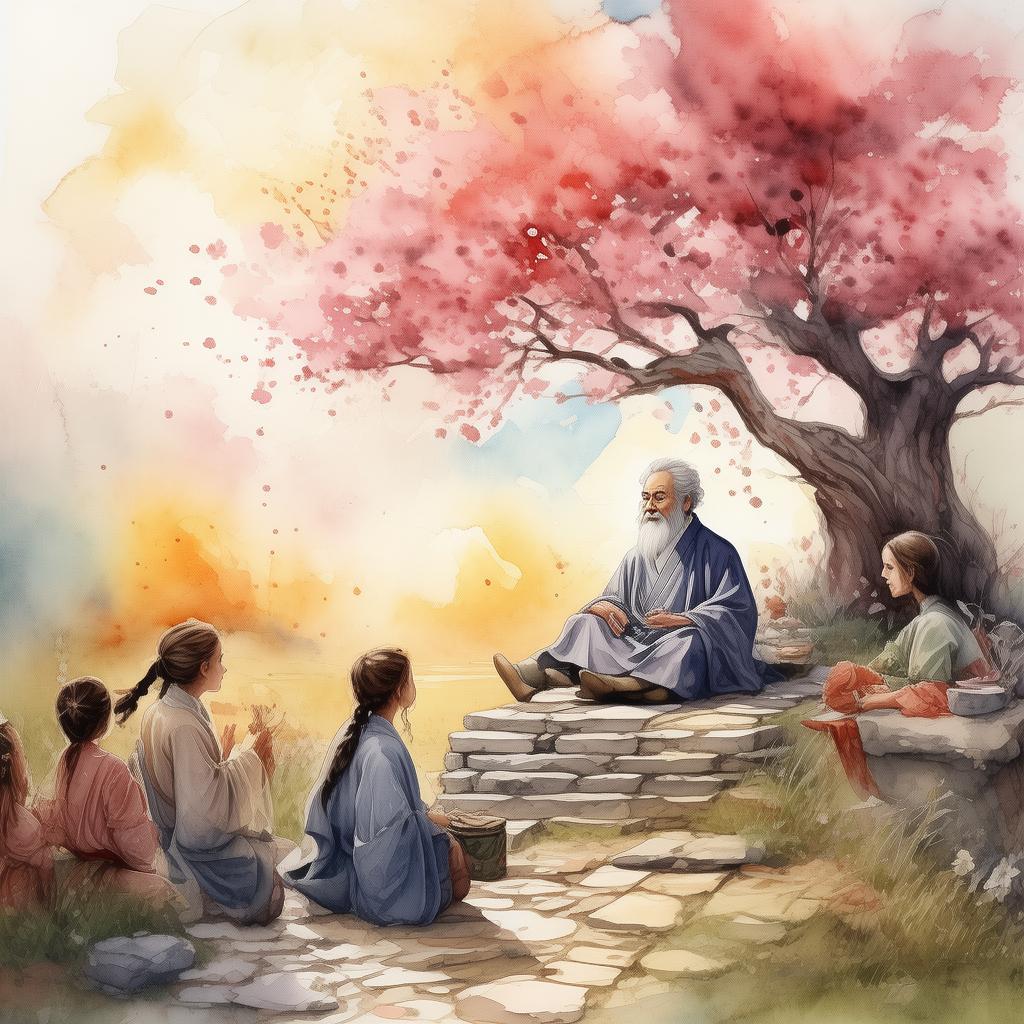Whispers of the Zenith: The Monk's Defiance
In the shadow of the Great Wall, where the Qin Dynasty reigned with an iron fist, there lived a monk named Xuan. His was a life of solitude, spent in the contemplation of the Dharma and the pursuit of enlightenment. Yet, as the years waned, a restlessness began to stir within him. The teachings of the Buddha, once a beacon of peace, now seemed too distant from the harsh realities of the world.
Xuan had heard tales of the Emperor's obsession with power, of how he sought to unite the warring states under a single banner, a banner of iron and blood. The Emperor's actions were a stark contrast to the principles of compassion and non-violence that were the core of Xuan's monkhood. It was this contradiction that became the monk's nemesis, the seed from which his defiance would sprout.
One evening, as the sun dipped below the horizon, casting a golden glow over the ancient city of Chang'an, Xuan made a decision that would change his life forever. He would challenge the Emperor, not with swords or words, but with the silent power of his enlightenment.
The following morning, Xuan set out for the imperial palace, a journey that would take him through the bustling streets and serene temples of the capital. His path was not without obstacles. The city was alive with the chatter of the common folk, the clatter of commerce, and the reverberations of martial law. Yet, Xuan walked with a serene determination, his mind unburdened by the distractions of the world.
Upon reaching the palace gates, he was met by guards who, upon seeing his simple robes and serene demeanor, did not take him seriously. "The Emperor is not to be disturbed by such trivial matters," they declared, attempting to turn him away.
But Xuan was undeterred. "I seek the Emperor not for trivial matters," he replied, his voice steady and calm. "I seek enlightenment for the sake of all sentient beings."
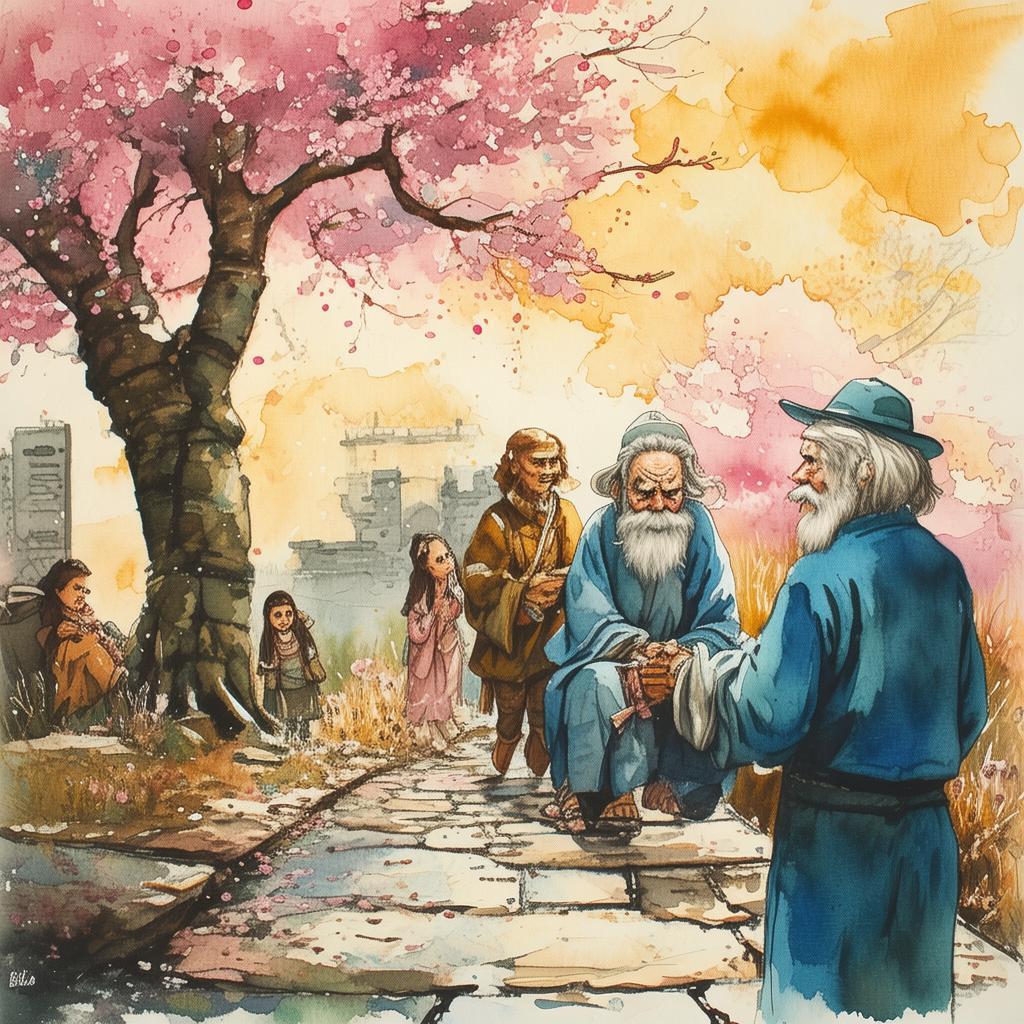
The guards, taken aback by the monk's audacity, led him to the presence of the Emperor, who was seated on his throne, surrounded by his courtiers and advisors. The Emperor, a man of immense power and ambition, was not accustomed to being challenged by anyone, let alone a monk.
"Who are you, and what do you seek?" the Emperor demanded, his voice tinged with irritation.
"I am Xuan, a monk seeking enlightenment," the monk replied. "I have come to challenge the Emperor's pursuit of power, for it stands in direct opposition to the principles of compassion and non-violence that are the foundation of our civilization."
The courtiers gasped, and the advisors exchanged nervous glances. The Emperor, however, was not one to be easily swayed. "You speak of principles, monk, but what do you know of power? What do you know of the needs of a nation?"
Xuan stood before him, his eyes closed, his body relaxed, as if he were in the midst of meditation. "I know that power is fleeting, and compassion is eternal. I know that the pursuit of power leads to suffering, while the practice of compassion brings peace."
The Emperor's face darkened with anger. "You speak of peace, but what do you propose? Do you suggest we abandon our quest for unity?"
Xuan opened his eyes, meeting the Emperor's gaze. "I suggest that we seek unity through understanding and harmony, not through force and coercion."
The Emperor, unable to contain his fury, leaped from his throne and pointed an accusing finger at the monk. "You, with your empty words and false teachings, will bring no peace to this realm! You will be executed!"
The courtiers gasped, but Xuan remained calm. "If I must die for the sake of peace, so be it," he said, his voice filled with resolve.
As the executioners approached, Xuan closed his eyes once more, entering a state of profound meditation. The Emperor, unable to bear the sight, turned away, his face a mask of contradiction. He had sought to silence a voice of dissent, but instead, he had found a challenge to his own beliefs.
The execution was swift, and Xuan's body was laid to rest in a simple grave, far from the grandeur of the palace. Yet, his spirit lived on, a whisper of defiance that echoed through the halls of power. The Emperor, for all his might, had been unable to crush the monk's resolve.
Years passed, and the Qin Dynasty crumbled under the weight of its own excesses. The Great Wall, once a symbol of unity, became a testament to the folly of power. And in the hearts of the people, there was a whisper of the monk who had stood up to the Emperor, a whisper that spoke of the true path to enlightenment.
In the end, it was not the Emperor's might that triumphed, but the monk's unwavering spirit. His defiance had not been in vain; it had sown the seeds of change, a change that would one day bring a new dawn to the land.
The story of Xuan, the Rebellious Monk, became a legend, a tale of one man's quest for enlightenment in the face of tyranny. It was a story that would be told for generations, a story that would remind the people of the power of compassion and the enduring nature of the human spirit.
✨ Original Statement ✨
All articles published on this website (including but not limited to text, images, videos, and other content) are original or authorized for reposting and are protected by relevant laws. Without the explicit written permission of this website, no individual or organization may copy, modify, repost, or use the content for commercial purposes.
If you need to quote or cooperate, please contact this site for authorization. We reserve the right to pursue legal responsibility for any unauthorized use.
Hereby declared.
